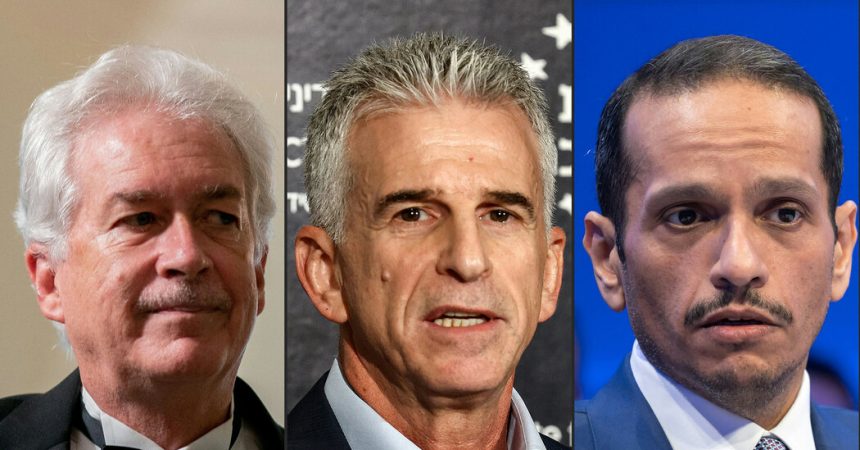Diplomats are aiming to restart negotiations for a cease-fire between Israel and Hamas at some point in the next week, according to three officials briefed on the process, rekindling hopes of an end to the fighting in Gaza even as Israel presses ahead with its campaign there.
According to the officials, preliminary discussions were held this weekend in Paris between David Barnea, the director of Israel’s foreign intelligence agency, the Mossad; William J. Burns, the director of the C.I.A.; and the Qatari prime minister, Sheikh Mohammed bin Abdulrahman Al Thani, one of the lead mediators between Israel and Hamas. The officials spoke on condition of anonymity because of the sensitivity of the matter.
For months, Qatar, the United States and Egypt have been trying to cajole Israel and Hamas into accepting a truce and an exchange of captives that could help bring the seven-month war to a close.
But previous talks have repeatedly broken down over the length and nature of the truce: Hamas wants a permanent cease-fire, allowing it to remain in charge of Gaza, while Israel wants to be able to continue fighting after a pause — so that it can wrest Hamas from power. The other major point of contention in the last round centered on how to transition between different phases of a three-phase deal.
Previous sticking points have included the extent to which Israeli troops should withdraw from Gaza during any truce, and whether Israel will allow Gazans to move freely between north and south Gaza.
The sides have also disagreed about the number of hostages that should be released by Hamas, as well as the number of Palestinian prisoners that should be freed in exchange by Israel. In the last round, negotiators talked about Hamas possibly releasing 33 hostages, mainly women, the elderly and anyone in need of urgent medical care. More than 120 hostages remain in Gaza, and roughly a quarter of them are dead, according to the latest Israeli assessment.
During the talks, Egyptian and Qatari officials have dealt directly with Hamas’s envoys, who do not meet in person with Israeli or American counterparts. Egypt took the lead in the last round of negotiations, which were held in Cairo, though Qatari officials were also present.
Diplomats say that the hostage negotiations need to be completed in order to make headway in other related diplomatic initiatives. Those endeavors include a regional debate about who should govern a postwar Gaza; talks over a normalization deal between Israel and Saudi Arabia; and negotiations for a cease-fire between Israel and Hezbollah, the Lebanese militia that is fighting the Israeli military along the Israel-Lebanon border.
Rawan Sheikh Ahmad contributed reporting from Haifa, Israel, and Julian E. Barnes contributed from Washington.







